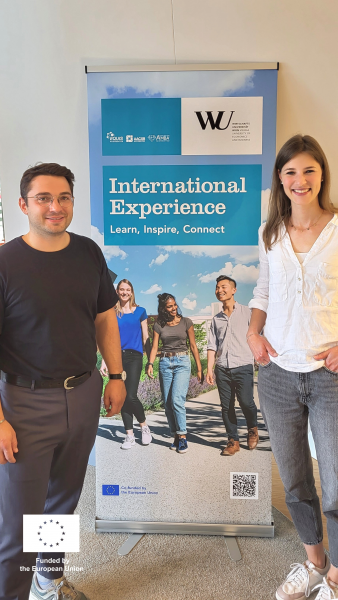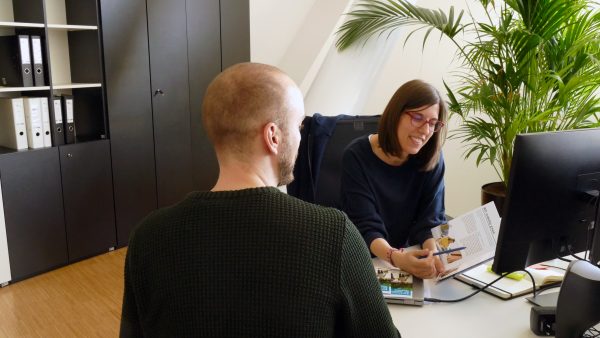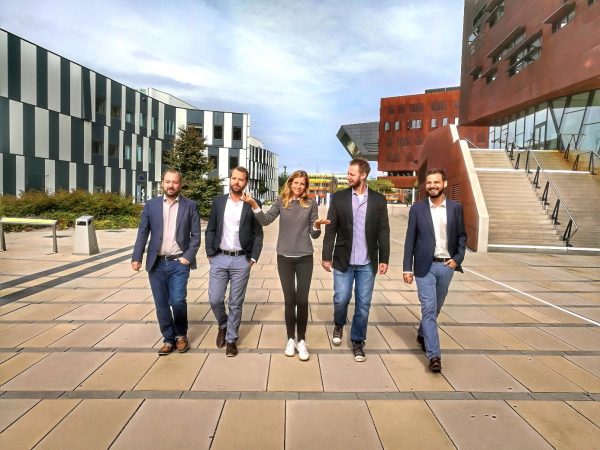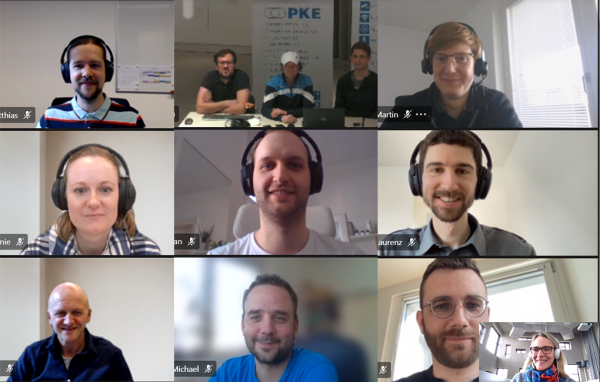The rise of Artificial Intelligence
For the first time ever, renowned scientists and global experts in the field of AI and deep learning met at WU Vienna to discuss the status quo and future of deep learning and machine learning.
The list of speakers reads like a “Who’s Who” of experts in this fascinating field. “We are very proud that the first AI Summit in Vienna was attended by more than 400 people, and it’s very impressive that our team was able to organize so many highly qualified AI experts to speak at our conference,” says summit organizer Thomas Reutterer, who is a Marketing Professor with special focus on Marketing and Customer Analytics at WU Vienna. The AI Summit Vienna was designed for a forward-thinking and tech-savvy audience and organized by WU graduate Michael Platzer from mostly.ai and the Vienna Deep Learning Meetup group around Thomas Lidy, Jan Schlüter and Alex Schindler.
Practical Applications
Dave Elliott (Global Product Lead at Google) opened the AI Summit as keynote speaker. In his talk, he provided examples for some practical applications of AI. “The keys to successful machine learning are large datasets, access to large-scale computers, and powerful tools and frameworks.” But how can companies accomplish this goal? “Millions could profit from machine learning. Companies can use an open source software like TensorFlow and profit from the benefits it offers, like connected server capacities. Not only Google, Facebook, and co. can benefit from these solutions.” AI offers a lot of opportunities, even in fields like sustainability: “Machine learning saved Google’s data centers 40% in cooling energy and improved power usage effectiveness (PUE) by 15%.”
Another expert who works with TensorFlow is Tomàš Mikolov, AI Research Scientist at Facebook, who is currently working with Neural Networks for natural language processing. His talk was about recent advancements in the field of natural language processing at Facebook. Mikolov is world-renowned for developing word2vec, an algorithm that autonomously learns to map languages into high-dimensional vector spaces, while preserving relationships. This enables calculations on top of words, an important step towards using textual data for machine learning systems. And, who would have thought that the machine knows the answer to “Sushi minus Japan plus Germany” being Bratwurst?
Linz vs. Mountain View
Sepp Hochreiter, head of the Institute of Bioinformatics at JKU Linz, is a pioneer in the field of deep learning and best known for developing the recurrent neural network known as long short-term memory (LSTM), which is basically the scientific theory behind modern voice transcription systems (like Google’s Alexa or Apple’s Siri). He’s convinced that the way we see computers will change as artificial intelligence evolves. “AI is not going to steal jobs nor will it kill us, like Skynet in Terminator. But it will definitely change the way we interact with computers,” says Hochreiter. The more information we feed to machines, the faster and more reliable their output will be. In some fields, they are already more precise than human beings: “Don’t trust human doctors when it comes to diagnostics, because machines are better. Thanks to AI, we are now already able to predict side effects of medications years before they come up,” says the expert from Linz, who also feels that Austria is well ahead of other European countries in the field of deep learning. “Forget Mountain View, come to Linz!”
Working as a Data Scientist
Ulla Kruhse-Lehtonen from DAIN Studios in Helsinki talked about opportunities for young scientists interested in a career in Deep Learning. “A PhD is a good start, but the main thing is that these people shouldn’t only think in terms of ‘resolving tickets,’ they need to be able to identify problems and think about possible solutions,” says Kruhse-Lehtonen. She also sees many applications for AI in all kinds of companies, but she also notes that every company should first ask itself, “What do we actually want to achieve with AI?”
The Man Behind “Shop the Look”
Last, but not least, Calvin Seward, Research Scientist at Zalando, talked about the algorithm behind the “Shop the Look” offers on popular online shopping sites. He and his team taught the application to identify, classify, and locate specific items from the online shop using generative adversarial networks (GANs). Though he is enthusiastic about the opportunities AI offers, he can relate to some of the issues and fears people have. “When confronted with these fears, an AI research scientist should always ask him or herself: How can AI become part of society in a beneficial way?”

Do you want to get to know more?
Slides of the talks are available on the AI Summit Vienna webpage and videos of the talks will go online within the second half of September. Check data science initiatives and educational programs at WU Vienna: Bachelor specializations Data Science and Service and Digital Marketing; WU executive program Data Science.
#AISummit #AISV2017 #DeepLearning #ArtificialIntelligence #Research




















